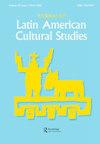“The flying ability of the mosquito made the situation difficult to cope with”: Contamination, Containment, and the Biopolitics of the Madeira‐ Mamoré Railway
IF 0.3
4区 社会学
Q4 CULTURAL STUDIES
引用次数: 0
Abstract
This article examines the role that disease-carrying mosquitoes played in the biopolitics of organisation during the construction of the Madeira-Mamoré Railway. Going beyond an emphasis on how life is managed by human government, it investigates how the politics of capitalist expansion is entangled in human and non-human living bodies. I argue that in the imperial context of early twentieth-century infrastructural developments in the Amazonian region, many carried out by foreign companies, measures for disease control cannot be separated from cultural and political stories – racialised stories – of multi-species contact and contamination, and their impact on processes of globalisation. Via the Brazil Railway Company’s photographic records, medical and engineering reports, and workers’ memoirs and articles, as well as Brazilian medical reports, newspapers, and literature, I approach contagion as a valuable concept for reflecting on coexistence in precarious environments marked by global interactions and colonial histories.“蚊子的飞行能力使情况难以应对”:马德拉-马莫尔铁路的污染、遏制和生物政治
本文考察了携带疾病的蚊子在马德拉-马莫雷尔铁路建设期间在组织生物政治中所起的作用。它超越了对人类政府如何管理生活的强调,探讨了资本主义扩张的政治如何与人类和非人类的生命体纠缠在一起。我认为,在20世纪早期亚马逊地区基础设施发展的帝国背景下,疾病控制措施不能与多物种接触和污染的文化和政治故事——种族化的故事——以及它们对全球化进程的影响分开。通过巴西铁路公司的摄影记录、医学和工程报告、工人的回忆录和文章,以及巴西的医学报告、报纸和文学作品,我将传染病视为一个有价值的概念,可以反映在以全球互动和殖民历史为标志的不稳定环境中的共存。
本文章由计算机程序翻译,如有差异,请以英文原文为准。
求助全文
约1分钟内获得全文
求助全文

 求助内容:
求助内容: 应助结果提醒方式:
应助结果提醒方式:


